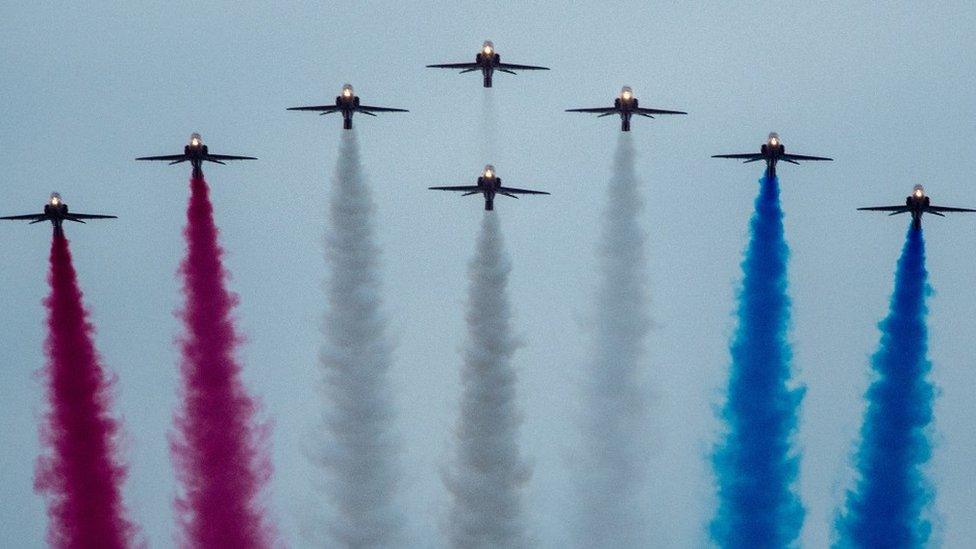Red Arrows: Predatory behaviour widespread and normalised - RAF
- Published
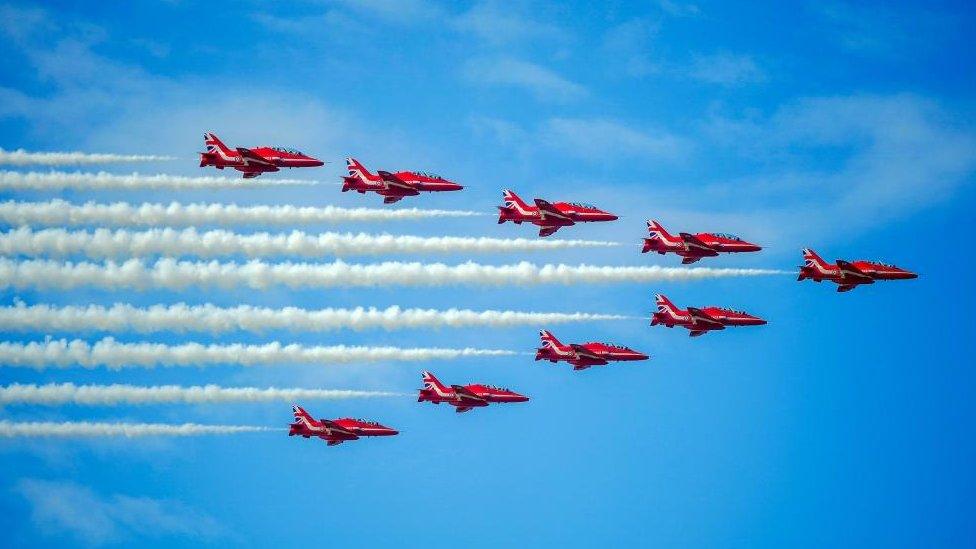
An investigation into a toxic culture in the RAF's Red Arrows display team has found predatory behaviour towards women was "widespread and normalised".
Examples included unwanted physical contact, sexual texts, invitations to engage in sexual activity, and women being seen as "property".
A "bystander culture" meant such behaviour went unchallenged, it found.
Air Chief Marshal Sir Richard Knighton said he was appalled by the findings and "unreservedly" apologised.
The non-statutory inquiry was launched in 2021 after three women went to the then head of the RAF about complaints they had made which had not been addressed by their chain of command. The inquiry covers a period dating back to 2017.
The RAF admitted part of the problem may have been a view that members of the display team were "special".
The aerobatic display team performs striking routines on distinctive Hawk fast-jets and, by the beginning of 2023, had performed almost 5,000 displays in 57 countries.
The RAF said the "high profile of the team, their regular exposure to VIPs, celebrities and an admiring public… promotes the view among some personnel that they are special and that normal rules and behaviours do not apply to them".
ACM Knighton, Chief of the Air Staff, offered his "unreserved apologies" to anyone who experienced unacceptable behaviour - and in particular the three women.
He admitted the reputation of the Red Arrows had been damaged as a result by a "minority", but said few of its leadership, air and ground crews from that time were still serving on the squadron.
He said there were no plans to disband the elite flying display team and that a change of culture, leadership and safeguards had been implemented to address the widespread and normalised "unacceptable behaviours" uncovered.
They included unwanted physical contact, unwanted text messages of a sexual nature, unwanted invitations to engage in sexual activity and "male sexual entitlement" towards women, who were "being viewed as 'property' of either individuals or the squadron".
There were two incidents of exposure of genitals, the RAF said.
Many of the specific examples, along with all names, have been redacted.
Investigators were concerned the squadron was not a safe environment for women and that it was highly likely they would experience unlawful harassment because of their sex.
The RAF said many examples of sexual harassment were not challenged. The inquiry found there "was a bystander culture... and an unwillingness to take action that could be viewed as unpopular".
It noted a "high propensity of extra marital relationships between serving personnel" which may have contributed to a "low opinion of female service personnel".
The inquiry highlighted a drinking culture - with so called unacceptable behaviours by male members often fuelled by alcohol.
Alcohol was seen as a mitigating factor but should have been treated as an aggravating factor, the RAF said.
The RAF said women had normalised the behaviour they experienced, and "many said they had 'got used to it'", with some modifying their own behaviour to reduce the risk of experiencing such actions.
It noted there was a sense of loyalty, with incidents dismissed because people did not want to ruin someone's career or disrupt the squadron.
It said: "All of the females expressed their concern, without solicitation, that they were not showing moral courage by not speaking out and they could be enabling the situation to happen to other women, but they had to balance this against the reality that they felt likely to suffer a detriment on a day to day basis and they had worked hard to get where they were and they did not want to sacrifice their position."
Robert Courts, chairman of the Defence Committee, said the inquiry findings showed there were "serious cultural problems running deep within the unit".
He said: "It is particularly concerning that the investigators warn that the squadron was not a safe environment for females, concluding that it was 'highly likely' that women would be subject to illegal sexual harassment.
"No service personnel should be made to feel unsafe by their colleagues. These are the very people who should protect them."
Deep-rooted problems still persist and must be urgently addressed, he said, adding the committee would be raising the issues in coming sessions.
Two pilots serving with the Red Arrows were dismissed from the team and the RAF following an initial investigation in 2022.
Five other members of the team, which includes ground staff and totals 120 personnel, have faced "administrative actions".
A separate military police investigation concluded that none of the allegations highlighted between 2017 and 2021 met the threshold for criminal charges.
The Red Arrows are based at RAF Waddington in Lincolnshire, having moved there in 2022 from RAF Scampton, also in Lincolnshire.
Related topics
- Published18 November 2022
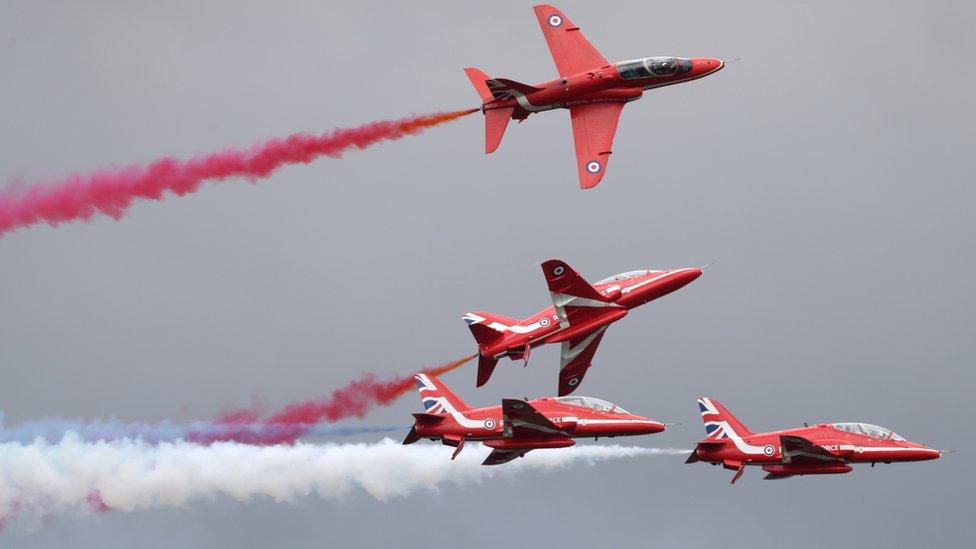
- Published22 November 2022
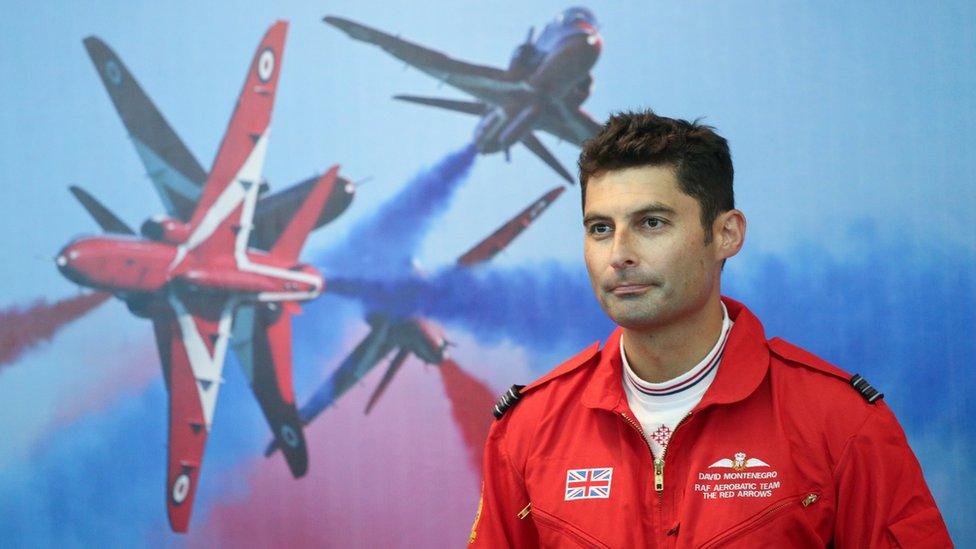
- Published24 August 2022
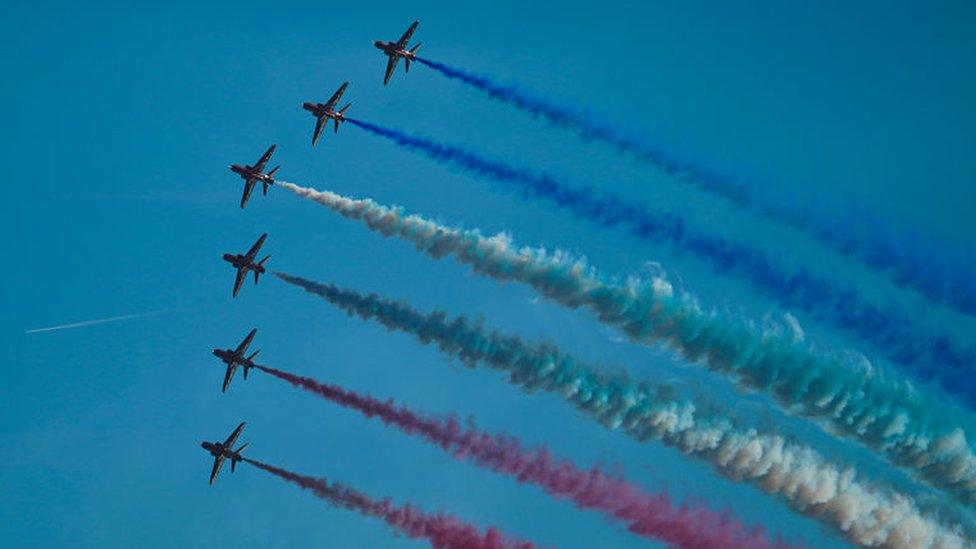
- Published11 November 2022
